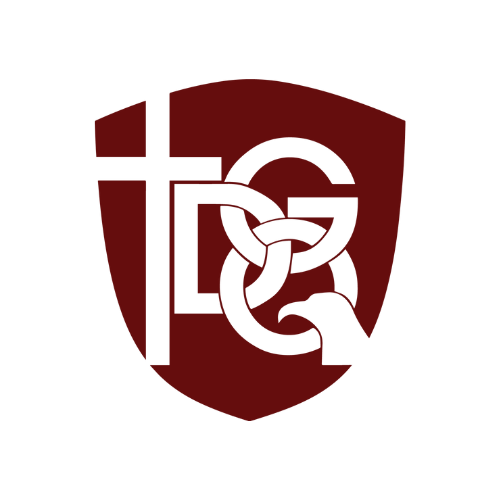GDQ Mathematics Curriculum Overview
God created the universe and everything in it. Mathematics is the language that we use to describe the laws of nature that God created and continues to sustain. God created everything in an orderly, logical way. Mathematics allows us to observe the concepts of patterns, order, beauty and design. Moreover, an understanding of these concepts enables us to appreciate God’s character and handiwork. God has given us an innate curiosity about the world. Exploring mathematical relationships fosters and strengthens our desire to be persistent in investigating the mysteries around us.
The mathematics program at GDQ
- emphasizes problem-solving processes, individually and cooperatively, through modeling, investigating, experiencing and communicating, both in verbal and written form;
- stimulates students’ curiosity, interest and enjoyment of the study of mathematics;
- incorporates age-appropriate use of manipulatives and technology;
- balances the use of mental math, written methods, or a calculator while showing solution processes clearly and systematically; and
- focuses on solving both closed and open-ended problems, consistently checking accuracy and questioning the reasonableness of solutions.
In relation to the various strands of mathematics, GDQ aims for its students to
General:
- Recognize the biblical basis for mathematics.
- Be curious in order to gain a greater understanding of the general nature and uses of mathematics.
- Apply general and specific problem-solving skills to real-world situations and check the feasibility of results.
Numbers:
- Have a growing understanding of the number system and how it works, differentiating between different types of numbers.
- Be able to evaluate and identify the different mathematical operations and their proper uses.
Algebra:
- Use variables or other place holders in problem-solving.
- Understand the relationships between functions and their graphs.
Data Handling:
- Evaluate, examine and ethically implement increasingly complex concepts of statistics and data analysis.
- Understand and apply concepts of probability.
Geometry:
- Use spatial geometry to explore and explain the world around them.
- Know how to take accurate measurements, what those measurements mean and how to use those measurements.
Lower School Mathematics Program
Fall of 2012 GDQ transitioned its lower school mathematics scheme to a relatively new program, Maths Makes Sense. An Oxford Press Publication, the program presents “a unique whole-school Maths programme that really takes into account how children learn.” The program is structured around ten “Big Ideas.”
- Addition
- Subtraction
- Multiplication
- Division
- Equals
- The symbols speak to you
- The logic of the language tells you the answer
- Denomination
- Ration
- Infinity
The program is highly structured in its teaching strategies and use of vocabulary, thereby allowing students to experience consistency throughout the K5 framework. The use of concrete objects, actions and vocabulary develop fluency, reasoning and problem-solving skills. The program aims to enhance student understanding in an enjoyable way so as to encourage student to become excited about math.
Middle School Mathematics Program
GDQ’s middle school mathematics program aims to build on the foundations established in grades K5 and to prepare students for mathematics at the high school level. As such, the grade 6 and 7 curriculum follows a British curriculum. The curriculum utilizes a modular approach and includes four main strands: number (number sense); algebra (development of algebra including graphs); geometry (shape, space and measures); and data handling (including statistics and probability). Each strand is visited and revisited during the year and then strengthened in the middle school grade to follow. The grade 8 curriculum transitions from the British model to the US model with students taking Algebra I.
High School Mathematics Program
To better prepare students for advanced math courses, the high school math program is transitioning from a mixed model – Cambridge IGCSE and AP – to a model more focused on the US curriculum. The program will phase out the Cambridge IGCSE syllabus for grade 9 in 2015-2016 and for grade 10 in 2016-2017. Hence, students entering high school in 2015-2016 will take Geometry in grade 9 and Algebra II in grade 10. This will ensure that students with an aptitude for mathematics have the content needed to succeed in Pre-Calculus in grade 11 and AP Calculus in grade 12. The IGCSE exam will, however, continue to be given at the end of grade 10 to assess student learning, and curriculum will be assessed to ensure that topics needed for the exam are covered during the grade 9 and grade 10 year. As GDQ requires students to complete three years of mathematics for graduation, a business maths class is offered for students who choose not to pursue the advanced math courses.
